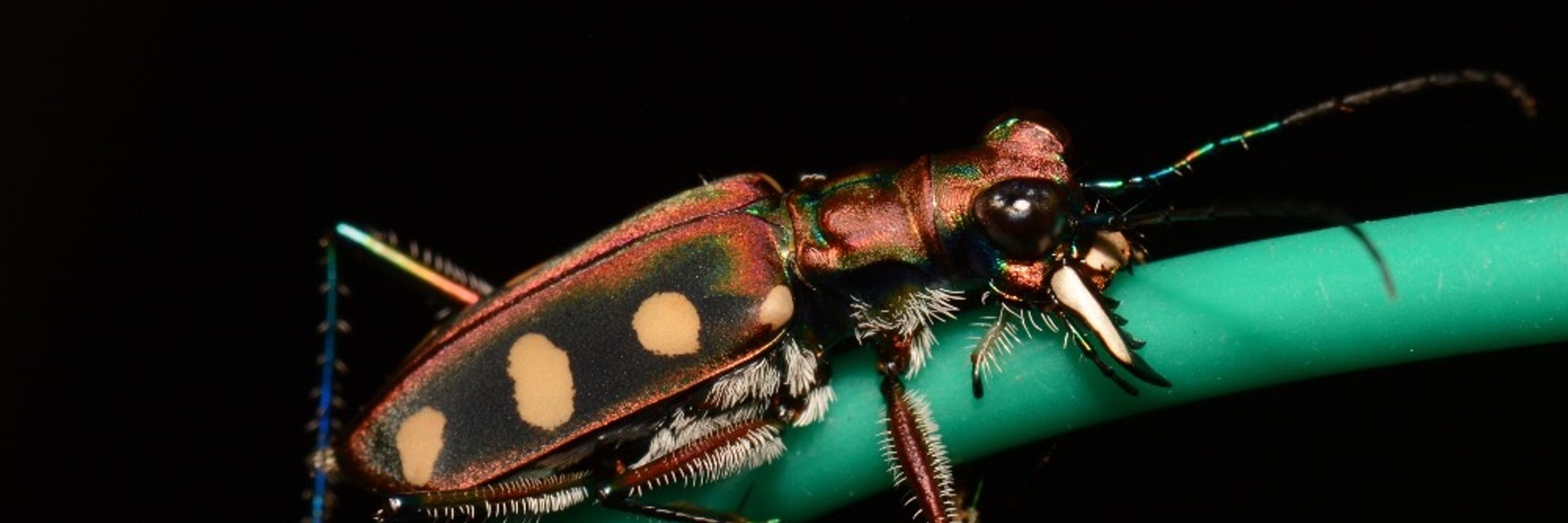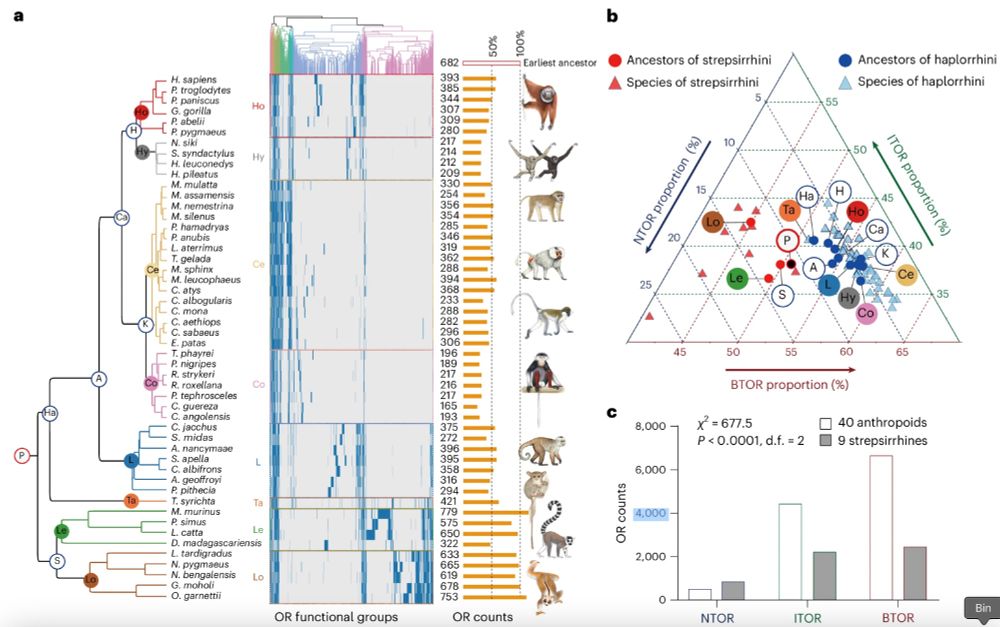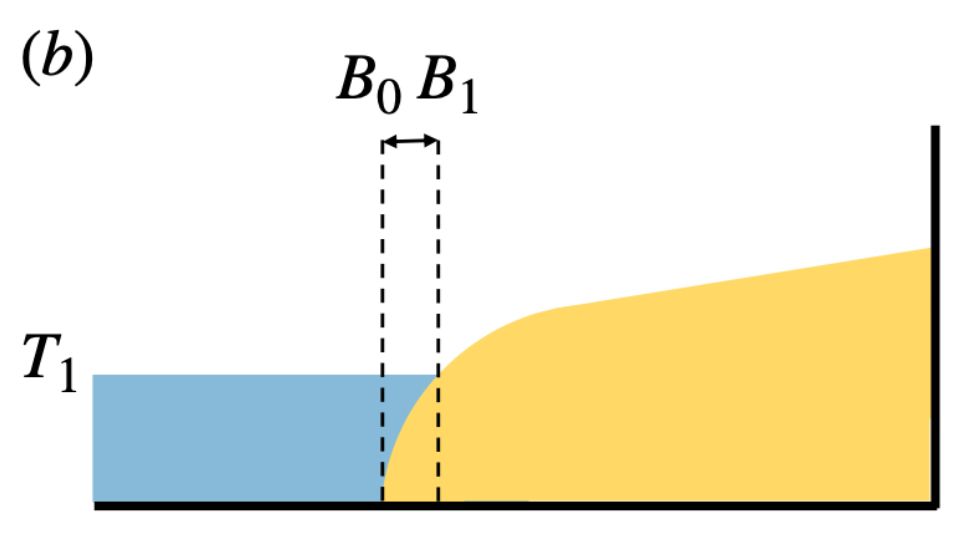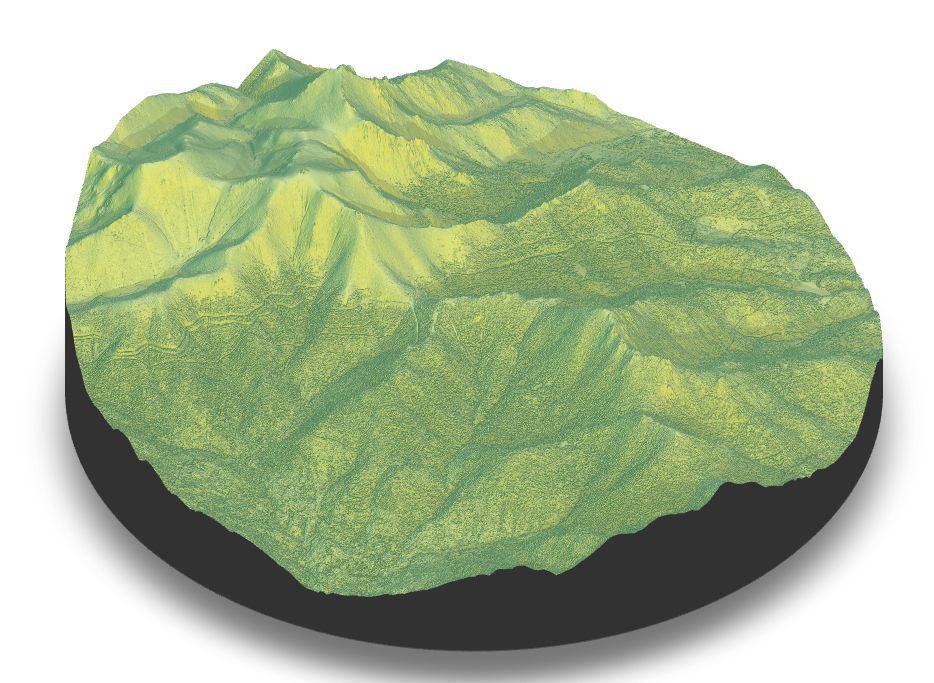
Joseph Williamson
@josephwilliamson.bsky.social
Researching biological responses to climate change using butterflies. Into inverts / traits / tropical forests / microclimate. Postdoc at University College London (CBER). He/Him. JoeWilliamsonDB on Twitter.
Black panther successfully hunting a dikdik last night. 🐈⬛ Definitely the best wildlife sighting of my life. 🥹 Incredibly lucky, and quite the cherry on top of a fantastic UCL undergraduate field course to Kenya! 🇰🇪 Recorded by student Aidan McAvoy.
June 10, 2025 at 10:52 AM
Black panther successfully hunting a dikdik last night. 🐈⬛ Definitely the best wildlife sighting of my life. 🥹 Incredibly lucky, and quite the cherry on top of a fantastic UCL undergraduate field course to Kenya! 🇰🇪 Recorded by student Aidan McAvoy.
What do you do when there is heatwave and the meeting room is being refurbed? Take Journal Club to the park of course! Ice lollies provided. 🥵🍦 @uclcber.bsky.social

May 1, 2025 at 11:28 AM
What do you do when there is heatwave and the meeting room is being refurbed? Take Journal Club to the park of course! Ice lollies provided. 🥵🍦 @uclcber.bsky.social
Great to see our new review on the causes and consequences of tropical insect declines out in Nature Reviews Biodiversity. 🪰🪲🐜🐛🐝🦋 It was a pleasure working with an international team of amazing tropical entomologists! 🧑🔬
www.nature.com/articles/s44...
www.nature.com/articles/s44...

April 4, 2025 at 8:14 AM
Great to see our new review on the causes and consequences of tropical insect declines out in Nature Reviews Biodiversity. 🪰🪲🐜🐛🐝🦋 It was a pleasure working with an international team of amazing tropical entomologists! 🧑🔬
www.nature.com/articles/s44...
www.nature.com/articles/s44...
🚨 New paper 🚨 Primate sensory evolution shows shifts in visual and olfactory systems 🦧👁️👃. Nice to see this is out, really cool combination of genomic, molecular and anatomical data! 🧬🧪🧠 Thanks to Hai Chi, Gang Li and co for having me on board. www.nature.com/articles/s41...

February 28, 2025 at 12:59 PM
🚨 New paper 🚨 Primate sensory evolution shows shifts in visual and olfactory systems 🦧👁️👃. Nice to see this is out, really cool combination of genomic, molecular and anatomical data! 🧬🧪🧠 Thanks to Hai Chi, Gang Li and co for having me on board. www.nature.com/articles/s41...
Warming tolerances are complex, and there are many population level responses (e.g. extinction lags, plasticity, adaptation) that could alter our null expectation of clustering and the subsequent impacts this has on biodiversity dynamics. We review these too!

January 9, 2025 at 12:53 PM
Warming tolerances are complex, and there are many population level responses (e.g. extinction lags, plasticity, adaptation) that could alter our null expectation of clustering and the subsequent impacts this has on biodiversity dynamics. We review these too!
Imagine this loss like a beach with rising seawaters. At first, due to a steep front of the beach, only small areas are inundated. However, as the tide rises further, the progressively shallower gradient of the beach allows the sea to rush in, suddenly submerging large areas.



January 9, 2025 at 12:53 PM
Imagine this loss like a beach with rising seawaters. At first, due to a steep front of the beach, only small areas are inundated. However, as the tide rises further, the progressively shallower gradient of the beach allows the sea to rush in, suddenly submerging large areas.
We also expect there to be an uneven distribution of thermal niche limits among species within ecological communities. Here we see that dung beetles from Borneo have clustered thermal limits meaning they may disappear at similar levels of warming. 🪲💩📉

January 9, 2025 at 12:53 PM
We also expect there to be an uneven distribution of thermal niche limits among species within ecological communities. Here we see that dung beetles from Borneo have clustered thermal limits meaning they may disappear at similar levels of warming. 🪲💩📉
For example, populations are unevenly distributed across a species’ thermal niche. Here we see how populations of a single coral species cluster across a temperature gradient. Many of these populations would thus be exposed to thermal stress at similar warming levels. 🪸😱

January 9, 2025 at 12:53 PM
For example, populations are unevenly distributed across a species’ thermal niche. Here we see how populations of a single coral species cluster across a temperature gradient. Many of these populations would thus be exposed to thermal stress at similar warming levels. 🪸😱
🚨New paper 🚨We argue that abrupt biodiversity losses can be driven by populations sharing similar tolerances to warming 🦋🌎🥵. Out now in @royalsocietypublishing.org. Summary thread below 🧵
royalsocietypublishing.org/doi/epdf/10....
royalsocietypublishing.org/doi/epdf/10....

January 9, 2025 at 12:53 PM
🚨New paper 🚨We argue that abrupt biodiversity losses can be driven by populations sharing similar tolerances to warming 🦋🌎🥵. Out now in @royalsocietypublishing.org. Summary thread below 🧵
royalsocietypublishing.org/doi/epdf/10....
royalsocietypublishing.org/doi/epdf/10....
Paper accepted 🥳🙌 in #philtransb is a nice way to start a grey Monday. Watch this space to learn more about how clustered warming tolerances drive non-linear risks of biodiversity loss on a warming planet! 🥵🌎🌿

November 4, 2024 at 10:54 AM
Paper accepted 🥳🙌 in #philtransb is a nice way to start a grey Monday. Watch this space to learn more about how clustered warming tolerances drive non-linear risks of biodiversity loss on a warming planet! 🥵🌎🌿
I’m presenting at British Ecological Society Annual Meeting 2023 - come listen to me speak about hot butterflies 🥵🦋🌍 in the Environmental Physiology session on Wednesday at 17:30. #BES2023

December 12, 2023 at 3:11 PM
I’m presenting at British Ecological Society Annual Meeting 2023 - come listen to me speak about hot butterflies 🥵🦋🌍 in the Environmental Physiology session on Wednesday at 17:30. #BES2023
Finally got around to playing with RayShader package in R. Visualising our field sites 🦋⛰️using airborne laser scans ✈️🔦. Check out how devoid of vegetation the mountain tops are. 😍

October 18, 2023 at 3:33 PM
Finally got around to playing with RayShader package in R. Visualising our field sites 🦋⛰️using airborne laser scans ✈️🔦. Check out how devoid of vegetation the mountain tops are. 😍
Our tipping points project team in Spain checked on our microclimatic loggers and took some hemispherical canopy cover images this week 🦋🌡️⛰️! Excited to delve into the first batch of data from the confines of my desk 🫠



October 11, 2023 at 11:07 AM
Our tipping points project team in Spain checked on our microclimatic loggers and took some hemispherical canopy cover images this week 🦋🌡️⛰️! Excited to delve into the first batch of data from the confines of my desk 🫠
Trying to find more of ecologists on here. Help appreciated. As payment, take this really cool new paper showing how species distribution models based on microclimate outperform coarse weather station alternatives 🌍🥵🌿. onlinelibrary.wiley.com/doi/epdf/10....

October 6, 2023 at 8:36 AM
Trying to find more of ecologists on here. Help appreciated. As payment, take this really cool new paper showing how species distribution models based on microclimate outperform coarse weather station alternatives 🌍🥵🌿. onlinelibrary.wiley.com/doi/epdf/10....
Insect biomass changes associated with changes in weather in Central Europe. Warm and dry winters are bad 🥵, warm springs are good ☺️. Interesting that biomass not obviously decreasing over time in these systems - but biomass is not the same as diversity! www.nature.com/articles/s41...


September 28, 2023 at 10:45 AM
Insect biomass changes associated with changes in weather in Central Europe. Warm and dry winters are bad 🥵, warm springs are good ☺️. Interesting that biomass not obviously decreasing over time in these systems - but biomass is not the same as diversity! www.nature.com/articles/s41...
Hi fellow science people, I'm Joe, a postdoc at University College London.
I study invertebrate thermal biology (Spanish butterflies at the moment🦋) and biodiversity responses to global change 🥵🌍.
I study invertebrate thermal biology (Spanish butterflies at the moment🦋) and biodiversity responses to global change 🥵🌍.




September 27, 2023 at 3:25 PM
Hi fellow science people, I'm Joe, a postdoc at University College London.
I study invertebrate thermal biology (Spanish butterflies at the moment🦋) and biodiversity responses to global change 🥵🌍.
I study invertebrate thermal biology (Spanish butterflies at the moment🦋) and biodiversity responses to global change 🥵🌍.

